第14章
A short period before the arrival of the first Pilgrims at Plymouth there had been a very grievous plague among the red men; and the sages and ministers of that day were inclined to the opinion that Providence had sent this mortality in order to make room for the settlement of the English. But I know not why we should suppose that an Indian's life is less precious, in the eye of Heaven, than that of a white man. Be that as it may, death had certainly been very busy with the savage tribes.
In many places the English found the wigwams deserted and the cornfields growing to waste, with none to harvest the grain. There were heaps of earth also, which, being dug open, proved to be Indian graves, containing bows and flint-headed spears and arrows; for the Indians buried the dead warrior's weapons along with him. In some spots there were skulls and other human bones lying unburied. In 1633, and the year afterwards, the small-pox broke out among the Massachusetts Indians, multitudes of whom died by this terrible disease of the Old World. These misfortunes made them far less powerful than they had formerly been.
For nearly half a century after the arrival of the English the red men showed themselves generally inclined to peace and amity. They often made submission when they might have made successful war. The Plymouth settlers, led by the famous Captain Miles Standish, slew some of them, in 1623, without any very evident necessity for so doing. In 1636, and the following year, there was the most dreadful war that had yet occurred between the Indians and the English. The Connecticut settlers, assisted by a celebrated Indian chief named Uncas, bore the brunt of this war, with but little aid from Massachusetts. Many hundreds of the hostile Indians were slain or burned in their wigwams. Sassacus, their sachem, fled to another tribe, after his own people were defeated; but he was murdered by them, and his head was sent to his English enemies.
From that period down to the time of King Philip's War, which will be mentioned hereafter, there was not much trouble with the Indians. But the colonists were always on their guard, and kept their weapons ready for the conflict.
"I have sometimes doubted," said Grandfather, when he had told these things to the Children,- "I have sometimes doubted whether there was more than a single man among our forefathers who realized that an Indian possesses a mind, and a heart, and an immortal soul. That single man was John Eliot. All the rest of the early settlers seemed to think that the Indians were an inferior race of beings, whom the Creator had merely allowed to keep possession of this beautiful country till the white men should be in want of it.""Did the pious men of those days never try to make Christian of them?"asked Laurence. "Sometimes, it is true," answered Grandfather, "the magistrates and ministers would talk about civilizing and converting the red people. But, at the bottom of their hearts, they would have had almost as much expectation of civilizing the wild bear of the woods and making him fit for paradise. They felt no faith in the success of any such attempts, because they had no love for the poor Indians. Now, Eliot was full of love for them; and therefore so full of faith and hope that he spent the labor of a lifetime in their behalf.""I would have conquered them first, and then converted them," said Charley.
"Ah, Charley, there spoke the very spirit of our forefathers." replied Grandfather. "But Mr. Eliot a better spirit. He looked upon them as his brethren. He persuaded as many of them as he could to leave off their idle and wandering habits, and to build houses and cultivate the earth, as the English did. He established schools among them and taught many of the Indians how to read. He taught them, likewise, how to pray. Hence they were called 'praying Indians.' Finally, having spent the best years of his life for their good, Mr. Eliot resolved to spend the remainder in doing them a yet greater benefit.""I know what that was!" cried Laurence.
"He sat down in his study," continued Grandfather, "and began a translation of the Bible into the Indian tongue. It was while he was engaged in this pious work that the mint-master gave him our great chair. His toil needed it and deserved it.""O Grandfather, tell us all about that Indian Bible!" exclaimed Laurence. "I have seen it in the library of the Athenaeum; and the tears came into my eyes to think that there were no Indians left to read it."